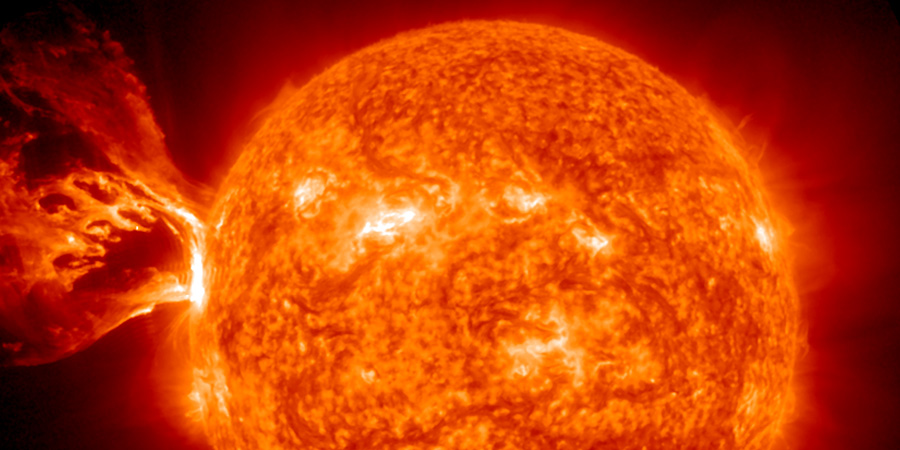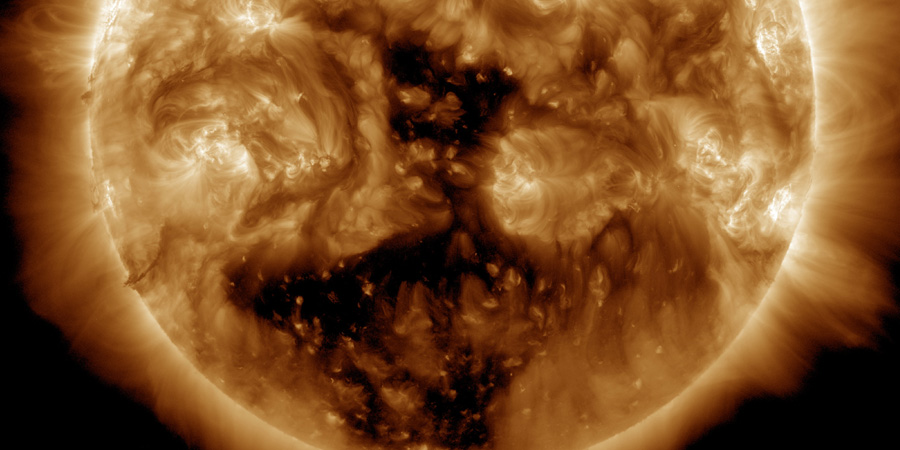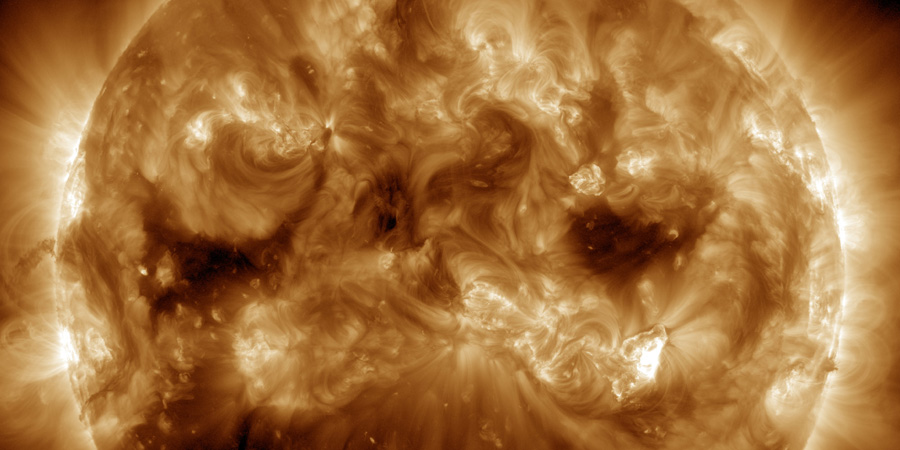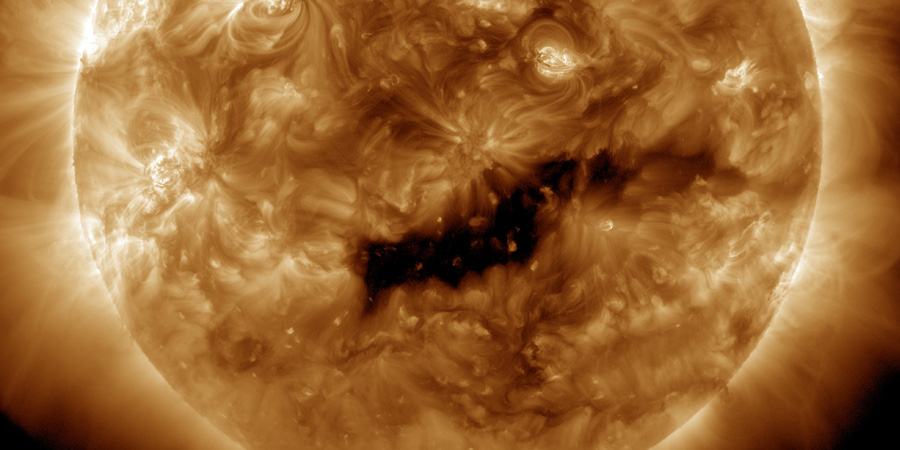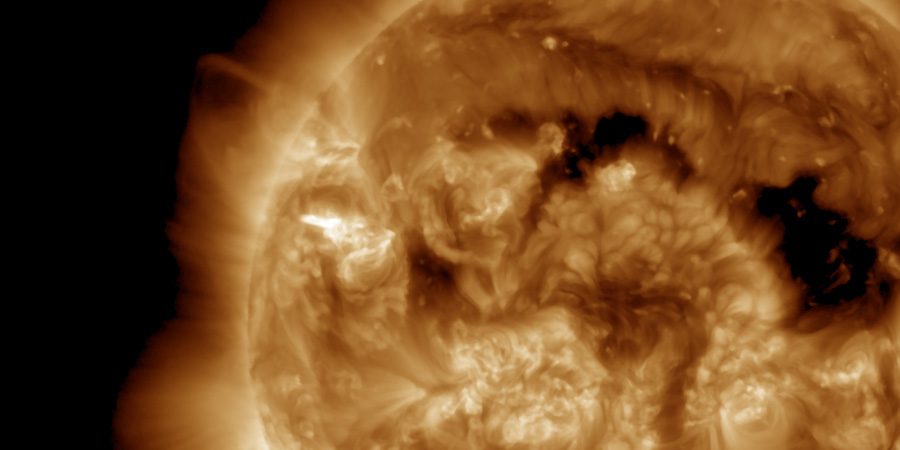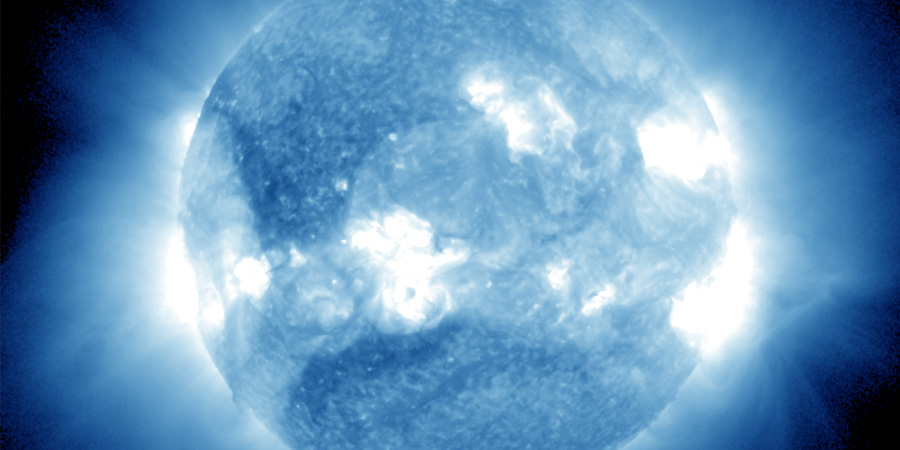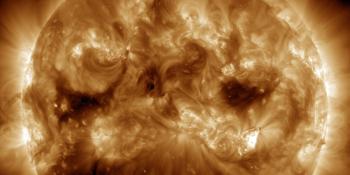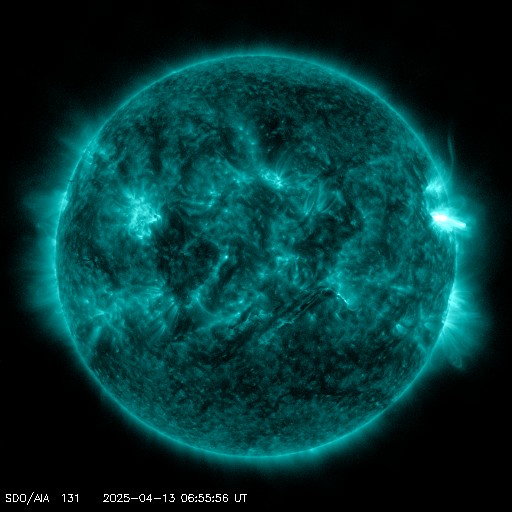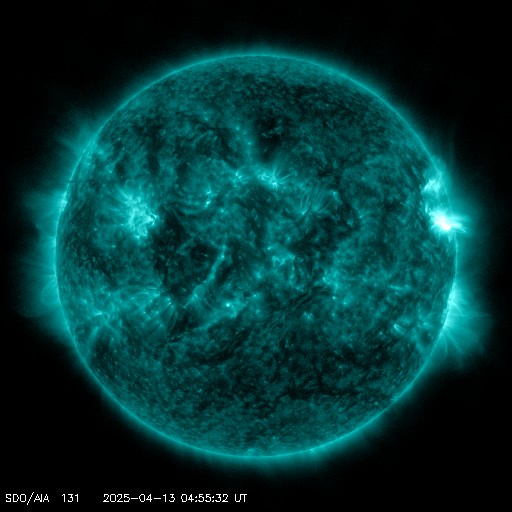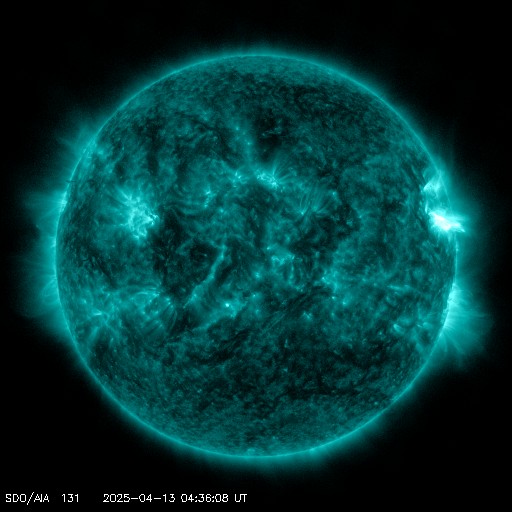Latest news updates Subscribe
X1.1 solar flare
piątek, 28 marca 2025 18:06 UTC
We have only just started to relax following the moderate G2 geomagnetic storm conditions from a massive coronal hole and suddenly... bam... our Sun surprises us all with a X1.1 solar flare (R3-strong) that came from sunspot region 4046 which is just rotating into view on the east limb.
Coronal hole faces Earth
poniedziałek, 24 marca 2025 16:59 UTC
The anticipated strong G3 geomagnetic storm watch never materialized as the coronal mass ejection that was supposed to arrive early yesterday didn't arrive until today just past midnight UTC. The impact was very lackluster with the Bt (total strength of the IMF) increasing to a moderate 15nT at best and the solar wind speed reaching just 420km/s. A far cry from the anticipated 700 to 800km/s. That once again goes to show how hard it is to forecast space weather events and any resulting geomagnetic conditions. We remain under the influence of the CME and high latitude sky watchers should remain alert for some nice aurora displays but middle latitude sky watchers will probably have to wait for the next opportunity.
Strong G3 geomagnetic storm watch for 23 March
sobota, 22 marca 2025 17:58 UTC
Yesterday around 16 UTC an M1.2 solar flare took place around sunspot region 4028. The solar flare triggered a filament eruption which erupted from the center of the earth-facing solar disk.
Coronal hole faces Earth
środa, 5 marca 2025 21:47 UTC
A coronal hole is facing our planet today which is sending a high speed solar wind stream towards us which could cause enhanced geomagnetic conditions (and thus aurora!) in the days ahead.
X2.0 solar flare from sunspot region 4001
niedziela, 23 lutego 2025 19:55 UTC
It has been 53 long days but we have finaly seen another X-class solar flare coming from the Sun today. Sunspot region 3947 produced an X1.8 solar flare on 4th of January and since that day... silence... but today departing sunspot region 4001 produced an X2.0 solar flare.
Coronal hole faces Earth, Minor G1 geomagnetic storm watch
piątek, 7 lutego 2025 19:26 UTC
Geomagnetic conditions have been relativity quiet lately with no strong geomagnetic storms to speak of. Coronal holes are however making a return and we are seeing them more regularly appearing and influencing the weather in space around Earth and thus the aurora dancing above our heads.
Double coronal holes face Earth
środa, 29 stycznia 2025 15:19 UTC
A coronal hole is facing our planet today which is sending a high speed solar wind stream towards us which could cause enhanced geomagnetic conditions (and thus aurora!) in the days ahead.
Coronal hole faces Earth
czwartek, 16 stycznia 2025 17:53 UTC
A coronal hole is facing our planet today which is sending a high speed solar wind stream towards us which could cause enhanced geomagnetic conditions (and thus aurora!) in the days ahead.
Sunspot region 3947, X-class solar flares
sobota, 4 stycznia 2025 17:46 UTC
Solar activity has been on the rise again thanks to flaring activity coming from sunspot region 3947. It has been responsible for multiple M-class events and three low-level X-class events including an X1.8 solar flare today that peaked at 12:48 UTC.
Two earth-directed coronal mass ejections
poniedziałek, 30 grudnia 2024 19:31 UTC
Our Sun remains fairly active today but no coronal mass ejections were launched today with a clear earth-directed component. We do however want to talk about yesterday's events again as more data and opinions have emerged...
Aktualne dane sugerują, że istnieje niewielkie prawdopodobieństwo pojawienia się zorzy polarnej w następujących regionach o wysokiej szerokości geograficznej w najbliższej przyszłości
Whitehorse, YT, Yellowknife, NTFairbanks, AK
Najnowsze wiadomości
Najnowsze wiadomości z forum
Więcej tematówWesprzyj SpaceWeatherLive.com!
Wielu ludzi odwiedza SpaceWeatherLive aby śledzić aktywność słoneczną lub sprawdzić czy jest szansa na zaobserwowanie zorzy polarnej. Niestety, większy ruch na stronie oznacza większe koszty utrzymania serwera. Dlatego, jeśli jesteś zadowolony ze strony SpaceWeatherLive, zachęcamy do wspierania nas finansowo. Dzięki temu będziemy mogli utrzymać naszą stronę.

Alerty
07:12 UTC - Rozbłysk słoneczny
Umiarkowany M1.02 rozbłysk słoneczny
06:54 UTC - Przerwy w dostawie sygnału radiowego
Trwa niewielka awaria radia R1 (≥M1 - aktualnie: M1.02)
05:12 UTC - Rozbłysk słoneczny
Umiarkowany M2.31 rozbłysk słoneczny
04:54 UTC - Przerwy w dostawie sygnału radiowego
Trwa niewielka awaria radia R1 (≥M1 - aktualnie: M1.89)
04:48 UTC - Rozbłysk słoneczny
Umiarkowany M1.12 rozbłysk słoneczny
Fakty na temat pogody kosmicznej
| Ostatnie rozbłyski klasy X | 2025/03/28 | X1.1 |
| Ostatnie rozbłyski klasy M | 2025/04/13 | M2.2 |
| Ostatnia burza geomagnetyczna | 2025/04/06 | Kp5 (G1) |
| Dni bez plam słonecznych | |
|---|---|
| Ostatni dzień bez skazy | 2022/06/08 |
| Średnia miesięczna liczba plam słonecznych | |
|---|---|
| marca 2025 | 134.2 -20.4 |
| kwietnia 2025 | 136.4 +2.2 |
| Ostatnie 30 dni | 134.7 -7.2 |
